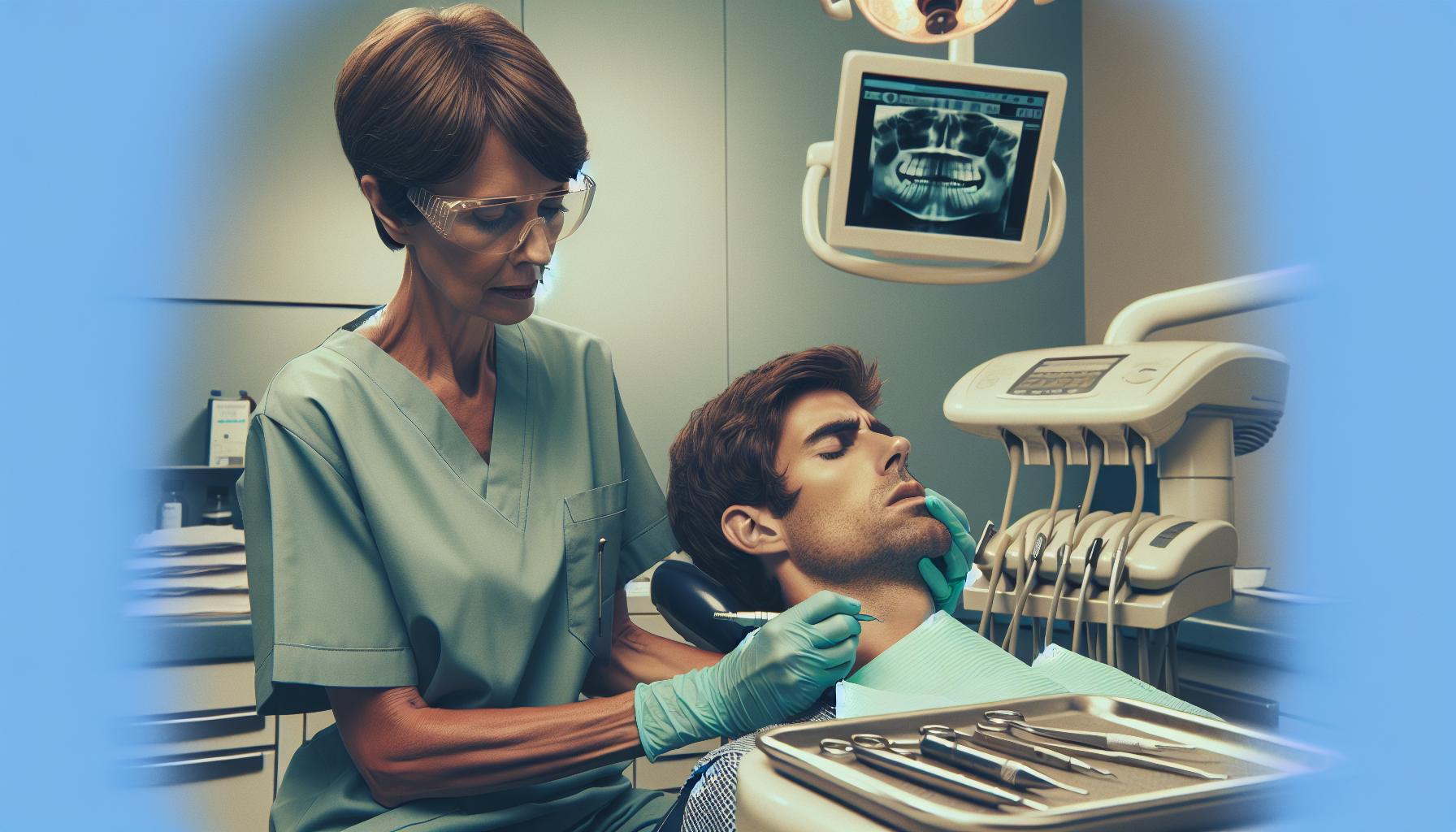In times of dental crisis, knowing how emergency dentists operate can make all the difference. These specialists are trained to handle urgent situations like severe pain, injuries, or infections, ensuring patients receive prompt care. Understanding their processes not only helps in navigating emergencies but also highlights the importance of having access to dental care when it matters most.
Overview of Emergency Dentistry
Emergency dentistry focuses on providing immediate care for urgent dental issues. This specialty addresses conditions such as severe toothaches, dental trauma, and infections. Emergency dentists offer critical services to alleviate pain and prevent further complications.
After hours emergency dentists play a crucial role in making sure that patients have access to urgent care, even outside normal office hours. For example, Emergency Dentist Perth is a trusted clinic that specializes in providing urgent care for dental emergencies, operating during extended hours to accommodate your needs.
Emergency dentists typically operate outside regular office hours, including nights and weekends. They provide crucial treatments such as extractions, root canal procedures, and management of dental injuries. These professionals assess the severity of the situation and prioritize care accordingly.
Patients seeking emergency dental care often experience intense discomfort or visible injuries. Quick intervention helps reduce the risk of long-term damage and promotes faster recovery. Emergency dentists maintain a comprehensive understanding of oral health to effectively handle various urgent situations.
Common Dental Emergencies

Dental emergencies often require immediate attention to prevent long-term damage. Understanding common types of dental crises helps individuals recognise when to seek urgent care.
Toothache and Pain Relief
Toothaches can stem from several issues, including cavities, abscesses, or gum disease. Symptoms may include sharp, throbbing, or persistent pain. Emergency dentists assess the underlying cause to provide appropriate pain relief, which might involve prescription medications, temporary fillings, or root canal therapy. Immediate care not only alleviates discomfort but also addresses the root cause, preventing further complications.
Broken or Chipped Teeth
Broken or chipped teeth result from trauma, biting hard objects, or decay. Visible damage often causes sensitivity and discomfort. Emergency dentists evaluate the extent of the injury and recommend treatments like dental bonding or crowns to restore function and aesthetics. Quick intervention helps prevent infection and further deterioration of the tooth structure.
Knocked-Out Teeth
A knocked-out tooth is a serious dental emergency requiring urgent attention. If a tooth gets dislodged, individuals should keep it moist, ideally placing it back in the socket or using a glass of milk if that’s not possible. Emergency dentists aim to reinsert the tooth if treated within one hour of the incident. Timely care enhances the chances of successful reattachment, preserving the natural tooth.
The Role of Emergency Dentists
Emergency dentists provide essential care for urgent dental issues that require immediate attention. These professionals are specifically trained to handle crises, ensuring patients receive prompt treatment to alleviate pain and prevent further complications.
Qualifications and Training
Emergency dentists undergo extensive education and training. Typically, they complete a dental degree followed by a residency or additional training focused on emergency procedures. This preparation equips them to manage complex situations, such as severe trauma or infections, effectively. Many emergency dentists also maintain certifications in advanced life support, enhancing their ability to respond to life-threatening dental emergencies.
Tools and Equipment Used
Emergency dentists utilise a range of specialised tools and equipment to diagnose and treat urgent dental problems. Common instruments include:
- Digital X-rays: For quick imaging of dental structures.
- Surgical instruments: Such as scalpels and forceps for tooth extractions.
- Anaesthetics: To manage pain during procedures.
- Sedation equipment: For patients requiring anxiety management.
These tools enable emergency dentists to deliver effective and timely treatments, ensuring optimal care during dental crises.
The Process of Emergency Dental Care
Emergency dental care follows a systematic approach to address urgent dental issues effectively. Patients typically report to an emergency dentist for immediate assessment and treatment.
Initial Consultation
During the initial consultation, the emergency dentist gathers information about the patient’s condition, focusing on symptoms and medical history. He or she evaluates the immediate concern, assessing pain levels, visible injuries, and potential risks. An examination may include checking for swelling, bleeding, or signs of infection. This initial assessment helps the dentist prioritise treatment based on the severity of the issue.
Diagnosis and Treatment Options
Once the assessment is complete, the dentist conducts necessary diagnostic tests such as X-rays to identify underlying problems. Common diagnoses include fractures, infections, or severe decay. Based on the findings, the emergency dentist presents treatment options tailored to the patient’s specific situation. Common treatments may involve pain management, tooth extraction, root canal therapy, or dental repairs. The dentist ensures to explain each option clearly, enabling the patient to make informed decisions about their care.
Conclusion
Emergency dentists are indispensable in providing prompt and effective care during dental crises. Their ability to operate outside regular hours ensures that patients receive the necessary treatment when they need it most. With their specialised training and advanced tools they manage a variety of urgent dental issues, prioritising patient comfort and recovery.
Understanding the processes involved in emergency dentistry empowers patients to seek timely help. This knowledge can significantly impact the outcome of dental emergencies, minimising complications and promoting better long-term health. Access to emergency dental care is crucial in maintaining overall wellbeing, making it essential for individuals to know where to turn in times of need.
Frequently Asked Questions
What is the role of emergency dentists?
Emergency dentists specialise in providing urgent dental care for issues like severe pain, dental injuries, and infections. They operate outside regular hours to ensure patients receive immediate attention for pressing dental needs.
When should I see an emergency dentist?
You should visit an emergency dentist if you experience intense tooth pain, a knocked-out tooth, broken or chipped teeth, or signs of a dental infection. Prompt treatment can prevent lasting damage and ensure quicker recovery.
What qualifications do emergency dentists have?
Emergency dentists hold a dental degree and undergo extensive training in emergency procedures. They often maintain certifications in advanced life support to handle critical situations effectively.
What treatments do emergency dentists provide?
Emergency dentists perform a variety of treatments, including tooth extractions, root canal therapy, and repairs for broken or chipped teeth. They prioritise care based on the severity of each patient’s condition.
How does the emergency dental care process work?
The process begins with an initial consultation where the dentist assesses symptoms and medical history. Then, diagnostic tests like X-rays are conducted, followed by tailored treatment options explained to the patient.
What tools do emergency dentists use?
Emergency dentists use various specialised tools, including digital X-rays, surgical instruments, anaesthetics, and sedation equipment. These tools enable them to deliver effective and timely care during dental emergencies.
Can I access emergency dental care at night or on weekends?
Yes, emergency dentists are available outside regular office hours, including evenings and weekends, ensuring that urgent dental care is accessible when you need it most.
